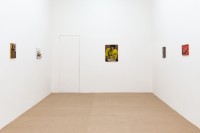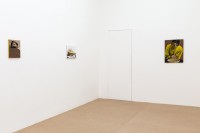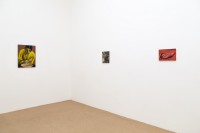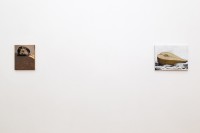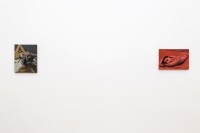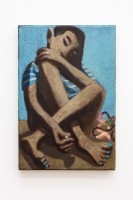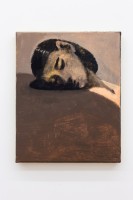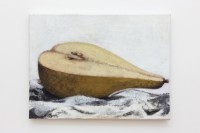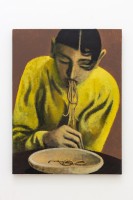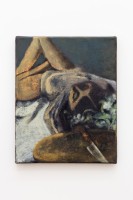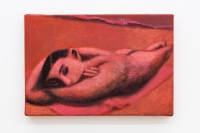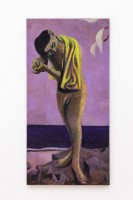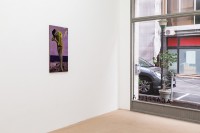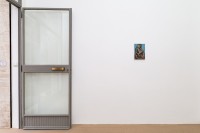Lenz Geerk
PEARS & PEARLS
28 Giugno – 20 Settembre 2018
What escapes the eye is untold truth, blind memory of something lost or never even possessed in the first place. The look exerts its pressure and control in the room of the visible, the space where scenes of knowledge and power outline – as Michel de Certeau would say. However, the visible aspect of an object always implies a part of pretense. The truth that it tells is mischief, and its trick is a form of comfort, legitimized by the manifest loyalty to what meets the eye. The invisible is the inner thread of the visible, the hidden part that supports it and shows itself unrevealed. Discordant element between social and private space, the invisible shows itself in the solitary confrontation that is true to the secret nature of emotions. And that secret is tension, which vanishes under our eyes and annihilates itself in its own mystery. Feeling is a tool of memory that goes beyond what is immediately visible, to catch a glimpse of an invisible reality. The work of Lenz Geerk (*1988) doesn’t stage an event, but rather a condition. Color, sign and body language converge into the stylized outlines of figures with a great expressive charge, impressing on the canvas what would inevitably fade away – a feeling or a state of mind, so recognizable that the aesthetic experience turns into shared experience, universal and collective. In its figures, the complex idea resolves into the simplicity of the shape, whose sign is both beginning and end. “Simplicity is complexity resolved” – we could stress, shifting the Brancusian thought. In them, the physiognomy is reduced to the essential in favor of other distinctive features. The eyes, often half closed, hint at the declared will not to share personal information or reveal any character traits. The stylization gets to the sign, so much so that the apparent aphasia of the superficial figures becomes inescapable postulate of the deeper figure. Here takes place a process that we could call denegation, a negation-affirmation, necessary to the conquest of its evidentia. Like characters of nameless stories, the subjects offer themselves to the viewer in a bold and discreet frontality that claims its right to exist as a private dimension. Far from that form of public intimacy of the identity experiences that take place online, Geerk’s painting contrasts the monocular vision of self-representation, mythology of the contemporary world where the perceptive universe of the ontological self is constantly renegotiated. We are confronted with two different kinds of pleasure for the look – voyeuristic and narcissistic. The subjects, unaware of being looked at, are captured in their own daily lives: ordinary activities and familiar or common objects – a pearl in a hand, for example, a plate of spaghetti about to be finished or a pear, ready to be eaten – become rhetorical expedients aimed to establish a direct relation to the viewer. The state of aesthetic contemplation is where the ideal self of the observer emerges. In this immediate lived act, he loses himself to the feeling of transposing into the aesthetic object. And the object of identification, in turn, gives back – referring to the German philosopher and psychologist Theodor Lipps. We then became it, welcoming the legacy of its actions. The ‘empty’ space around it is the necessary glue, a space beyond the line that is idealizing desire of unity. The absence of a spatial context is therefore the place where collective experience and personal history meet again. The figures are like suspended presences that kind the essence of their own resolution in their non-collocation. The desire of universality of the object moves toward a state where figure and context, permanent and temporary, merge into a space that seems to house sole dancers, inviting the viewer to search in them for mirrors to recognize themselves into. Deprived of the sense of time and pressed at the border between symbolic and abstract, they embody a silent and permanent beauty. Their vulnerable sensuality, touchable and far away, makes them innocent but not neutral figures. Born from a temporal ambiguity that connects them to no time, they represent the incarnation of that look that they are hiding at the same time. Free figures that entrust the turmoil of feeling to the evocative force of the synthesis of sign, and that – in this spasm – never lose the elegance of the mystery they learned.
– Marialuisa Pastò
